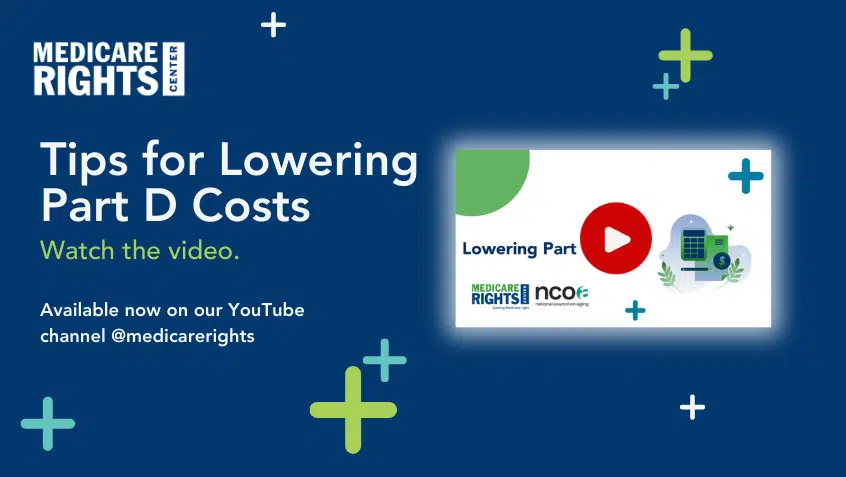Join Us Live for a Discussion on Medicare, Democracy, and the Future of Health Care
Means Testing and Income Relating Undermines Medicare

Some policymakers support “means testing” or “income relating” Medicare—making higher-income people pay more or get less—by raising premiums or cutting benefits for people above a certain income level. Some approaches would even lead to people getting no benefit at all from the dollars they already paid into Medicare.
Such proposals threaten to undermine the Medicare guarantee—that those who contributed to the system will have access to high-quality health care as they get older. They also fail to recognize that older adults with higher incomes already pay more for Medicare during their working lives and/or after retirement. For example:
- Higher earners already pay more for their benefits. The Medicare payroll tax is 1.45% for the employer and 1.45% for the employee, or 2.9% total. Unlike the Social Security payroll tax, the Medicare tax does not have a cap. This means that higher-income earners keep paying into Medicare no matter how high their incomes go. The more someone earns, the more they pay into Medicare.
- In addition, some higher-income earners have a 0.9% payroll surcharge during their working lives. This is on top of the above payroll tax. The threshold for this additional Medicare tax is $200,000 for single filers and $250,000 for married filing jointly.
- Those who have incomes above $88,000 per year pay more for their Medicare Part B premiums as well as any Part D (prescription drug coverage) premiums through the Income-Related Monthly Adjustment Amount (IRMAA). The Part B IRMAA surcharges start at $59.40/ per month, topping out at an extra $343.10 per month for the highest earners. For Part D, the additional IRMAA premium starts at $12.30 per month, topping out at an extra $77.10 per month for the highest earners.
Together, these policies mean that higher-income people already pay more for their Medicare benefits than lower-income people do. Further means testing would jeopardize the integrity and universality of Medicare.
It could also mean higher health care costs for the middle class. Some policymakers want to increase the IRMAA surcharge or lower the threshold from $88,000, including in ways that would add surcharges for incomes under $50,000. This undeniably would increase health care costs for the middle class.
This conversation is particularly relevant as lawmakers debate adding dental, vision, and hearing coverage to Medicare Part B in the budget reconciliation “Build Back Better” bill. Divisions among Democrats about the package’s price tag and policies mean it is likely to shrink, which may include scaling back and reworking its health care provisions. One idea under consideration is to limit some or all of the new Medicare benefits to those with the lowest incomes. Medicare Rights strongly opposes this strategy. It would set a terrible precedent, create additional complexity for beneficiaries and the program, and destabilize the risk pool—increasing premiums and costs.
Policymakers must keep in mind that often, the sicker a beneficiary is, the more expensive their care will be. For those with serious and chronic illnesses, middle incomes can already fall short and even higher incomes can start to become inadequate. Instead of looking to make people with Medicare pay more, the focus should be on bringing down the costs for everyone.
More means testing also undermines the universality and integrity of Medicare. By denying people the benefit they have been promised and that they’ve been contributing to, means testing undermines the Medicare guarantee. This chips away at the consistent, broad-based support for the program and could even cause some to drop Medicare entirely, raising costs on the middle- and lower-income beneficiaries who rely on the program.
Medicare remains an overwhelmingly popular benefit, as consistently demonstrated in public opinion polls regardless of age, income level, or political affiliation. American families are supportive of preserving Medicare because they know its value as a cornerstone of health and economic security. Further means testing would snatch some of that value away from people who are counting on Medicare to be there for them.
Take Action! Urge your lawmakers to improve—not undermine—Medicare in the budget reconciliation bill.
Show Comments
We welcome thoughtful, respectful discussion on our website. To maintain a safe and constructive environment, comments that include profanity or violent, threatening language will be hidden. We may ban commentors who repeatedly cross these guidelines.
Help Us Protect & Strengthen Medicare
Donate today and make a lasting impact
More than 67 million people rely on Medicare—but many still face barriers to the care they need. With your support, we provide free, unbiased help to people navigating Medicare and work across the country with federal and state advocates to protect Medicare’s future and address the needs of those it serves.
The Latest
Most Read
Add Medicare to Your Inbox
Sign up to receive Medicare news, policy developments, and other useful updates from the Medicare Rights.
View this profile on InstagramMedicare Rights Center (@medicarerights) • Instagram photos and videos









